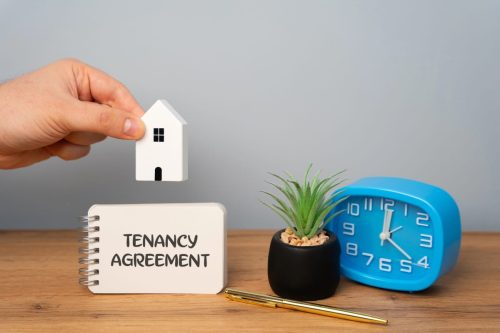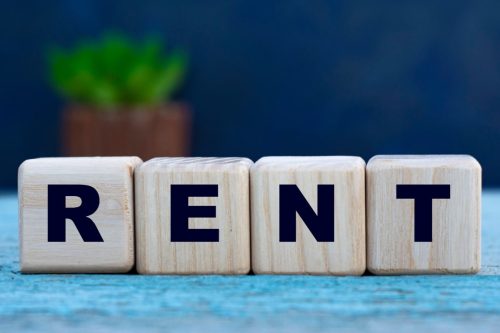Property investment and renting out your property can be a great way to generate income and build wealth. However, as a first-time landlord, it can be overwhelming to navigate the process of finding and screening tenants, creating a lease agreement, and property management.
By following some basic guidelines and being prepared to rent out your property, you can ensure a successful rental experience for both you and your tenants.
What to do before you rent out your investment property
In order to lease your investment property, there are several steps you will need to take.
First, you will need to ensure that the rental property is in good condition and meets minimum security and smoke alarm / RCD legislations.
Next, you will need to determine fair market rent for the property and set the rental rate accordingly. To help increase the value of your property and the amount you can make from rental income, think about simple things you can make to help appeal to potential renters.
This can include:
- Re-painting and refreshing the wall paints, touching up any chips to door frames and making it as clean and tidy as possible.
- Improving the exterior of the property, such as tidying up the gardens and sweeping paved areas and removing weeds.
It’s important to remember that not all of these strategies will work for every property, so it’s a good idea to consult with a good property manager to determine which strategies will be most effective for your specific property.
Know your responsibilities as a landlord

Now let’s talk about your duties as a landlord and your legal obligations. Firstly, it is essential to keep accurate records of all income and expenses related to the rental property, as this will help you stay organised and compliant with any relevant tax laws.
Another thing to consider with landlord renting is that you will also need to comply with all local and state landlord-tenant laws. This includes providing tenants with a copy of the lease agreement, as well as giving them notice before entering the property.
You also need to be prepared to handle any issues that may arise during the tenancy, such as maintenance requests or late rent payments. It is important to handle these situations in a timely manner and in accordance with the rental laws, to avoid any legal complications.
Know what to charge
Determining the fair market rent for your rental property can be a complex process.
One of the first things to consider is researching comparable properties in the same area. This will give you an idea of the going rate for similar properties and will help you set a competitive rental rate.
Another approach is to check with a local property manager and conduct a rent appraisal. A local property manager will have a good understanding of the local market and can help you determine a fair rent for your property. They will also have access to a large database of tenants waiting for a property.
When setting the rent an experienced property manager can help you adjust the pricing based on recent leasing history of comparable properties and adjust the price for any unique features such as a pool or a view.
Another important factor to consider is the local rental market conditions. If there is a high demand for rental properties in your area, you may be able to charge more rent. However, if the market is slow, you may need to adjust your rental rate accordingly.
It’s important to remember that rental rates can vary depending on the location, size, and condition of your investment property, so it’s a good idea to research the market and consult with local property managers before setting your rental rate.
Also, it’s important to review the lease agreement and rental rate periodically based on the market and the conditions of your tenants lease, to ensure that you are charging a fair and competitive rental price.
Find the right tenants for your rental property

Finding the right tenants for your investment property is essential for a successful rental experience.
- Advertise: The first step is to advertise your property, by listing it on all the major rental websites using high-quality pictures and a detailed description of the property. This will help to attract potential tenants who are interested in your property.
- Visual walkthrough: In addition to photos, having a video walkthrough helps applicants who may not be able to view it in person.
- Screening: Next, screen potential tenants by reviewing their credit, employment, and rental history. You can use online tenant screening services to run background checks on potential tenants.
- Interviews: Additionally, conduct face-to-face or phone interviews with potential tenants, and ask them questions about their lifestyle, employment, and rental history.
- References: It’s also important to check references by contacting the tenant’s current and previous landlords to get an idea of their rental history.
- Finances: Verify the tenant’s income by asking for pay slips and confirming employment with their employers. Some red flags during the screening process, such as previous evictions, a history of late rent payments, or a high debt-to-income ratio.
Another option to consider is using a property manager. Property managers can handle the screening process and also handle the day-to-day management of the property, including rent collection and arranging maintenance and lease renewals. With this option, you need to choose the right property manager and consider any property management fees.
Create a lease agreement

Creating a lease agreement, also known as a residential tenancy agreement, with a new tenant is a crucial step in the rental process. It should include important elements such as the property information, which includes the address of the property, the names of the landlord and tenant, and the date the lease agreement is signed.
- The rent and security deposit, or rental bond, including the amount of rent due each month, the due date, and the method of payment should be included as well as the amount of the rental bond and the terms for its return at the end of the lease.
- You also need to add the term of the lease, including the length of the lease, whether it is month-to-month or for a specific term, and the date the lease begins and ends.
- It’s also important to include details on the lease for any extra items or responsibilities each party will be responsible for.
- You also need to include occupancy limits and prohibited activities such as smoking, pets, and unauthorised alterations to the property.
- You need to specify the notice and termination and the conditions under which the lease can be terminated.
It’s important to have a lawyer or professional property manager review the lease agreement before it is signed to ensure that it is legally binding and complies with all state and local laws. Once the lease agreement is signed by all property owners or a property manager on your behalf and the tenants, it becomes a legally binding contract and both parties are expected to abide by its terms and conditions.
Address any problems
As a landlord, it is crucial to address any problems with maintenance or other issues in a timely and effective manner. Here are some steps you can take to address these issues.
- Make sure your tenants know how to contact you and that you are available to respond to their requests in a timely manner.
- Have a written policy in place that outlines the procedures for reporting and addressing maintenance issues. Make sure your tenants are aware of this policy when they first rent out your property and understand it.
- Address maintenance requests as soon as possible to minimise the disruption to your tenant’s daily life.
- Handle emergency repairs, such as a leaky roof or broken furnace, as a priority.
- Keep detailed records of all maintenance requests, repairs, and rent inspections. This will help you stay organised and will also be useful in case of any legal disputes.
It’s important to be responsive and professional when addressing emergencies and maintenance issues and to maintain a good relationship with your tenants. By addressing issues in a timely and effective manner, you can help to ensure a positive rental experience for your tenants and minimise potential legal issues.
Get help from an experienced property manager
Are you looking to rent out your investment property but you’re not sure where to start? We can help! Let the property management experts at HKY take care of all the details so you can enjoy a stress-free experience. Our knowledgeable team will make sure this process runs smoothly and keep you up-to-date along the way.
HKY Real Estate is your trusted partner for this new undertaking. We are an independently owned real estate agency that currently manages millions of dollars worth of Perth real estate.
Contact us to start your rental journey the right way.
Renting out your property FAQs
There are several important things to consider before renting out your property, such as the condition of the property, local zoning laws, and the potential income you can generate.
It is also important to consider whether you are comfortable being a landlord and dealing with tenants or whether you would like to leave this to a professional property management team.
To set a fair rental price for your property, you should research the rental market in your area to see what similar properties are being rented for. You can also consult with a local real estate agent for guidance. Keep in mind that you will also need to factor in additional costs such as utilities and maintenance.
Common legal requirements for renting out a property include obtaining all necessary permits and licenses, following fair housing laws, and creating a legally binding lease agreement.
It is also important to keep proper records and documentation, including applications, agreements and records of rent payments.
Additionally, landlords have a legal responsibility to ensure the property is safe and habitable, and to make any necessary repairs in a timely manner.
Have more questions?



